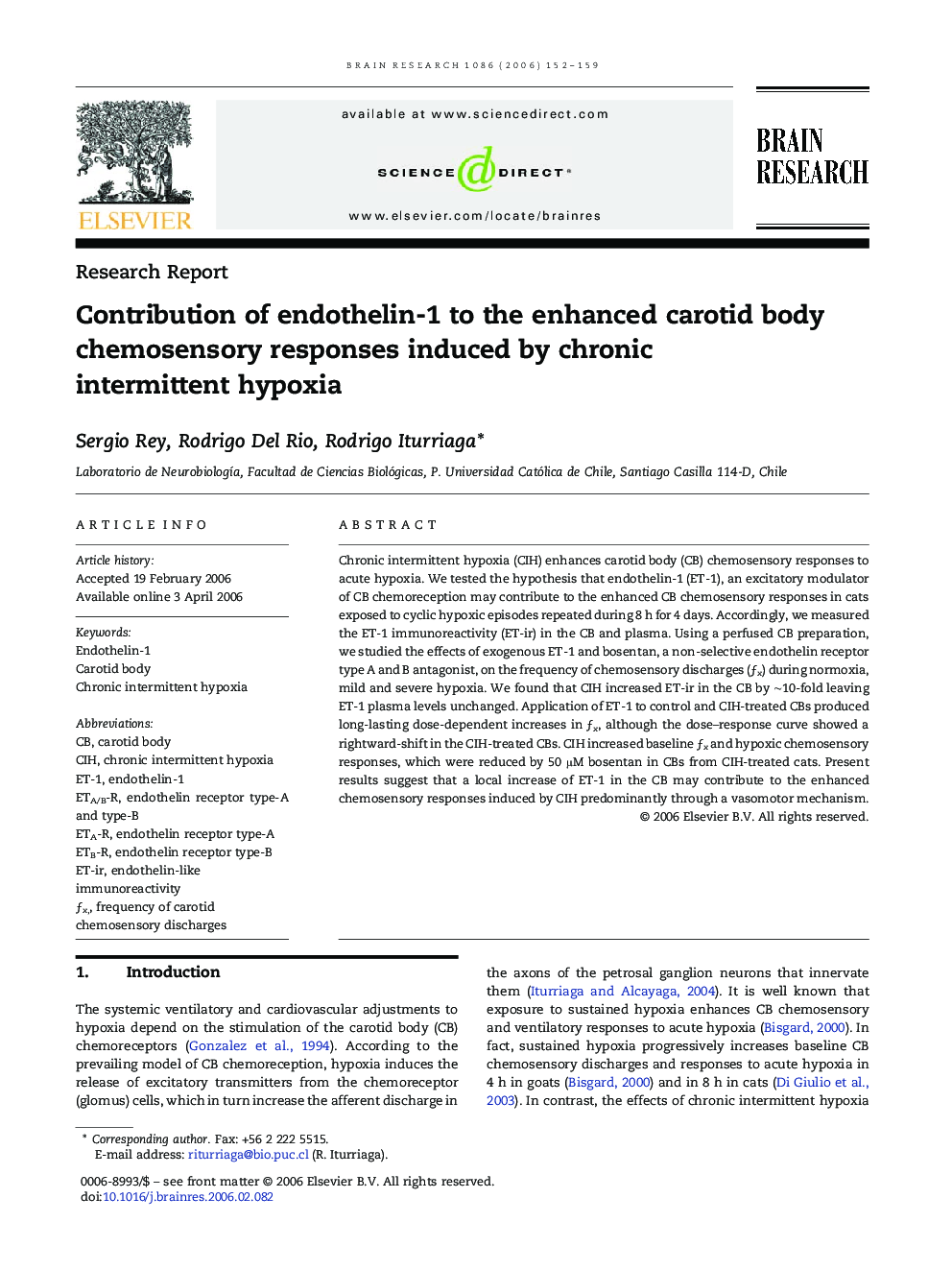| Article ID | Journal | Published Year | Pages | File Type |
|---|---|---|---|---|
| 4333057 | Brain Research | 2006 | 8 Pages |
Abstract
Chronic intermittent hypoxia (CIH) enhances carotid body (CB) chemosensory responses to acute hypoxia. We tested the hypothesis that endothelin-1 (ET-1), an excitatory modulator of CB chemoreception may contribute to the enhanced CB chemosensory responses in cats exposed to cyclic hypoxic episodes repeated during 8 h for 4 days. Accordingly, we measured the ET-1 immunoreactivity (ET-ir) in the CB and plasma. Using a perfused CB preparation, we studied the effects of exogenous ET-1 and bosentan, a non-selective endothelin receptor type A and B antagonist, on the frequency of chemosensory discharges (Æx) during normoxia, mild and severe hypoxia. We found that CIH increased ET-ir in the CB by â¼10-fold leaving ET-1 plasma levels unchanged. Application of ET-1 to control and CIH-treated CBs produced long-lasting dose-dependent increases in Æx, although the dose-response curve showed a rightward-shift in the CIH-treated CBs. CIH increased baseline Æx and hypoxic chemosensory responses, which were reduced by 50 μM bosentan in CBs from CIH-treated cats. Present results suggest that a local increase of ET-1 in the CB may contribute to the enhanced chemosensory responses induced by CIH predominantly through a vasomotor mechanism.
Related Topics
Life Sciences
Neuroscience
Neuroscience (General)
Authors
Sergio Rey, Rodrigo Del Rio, Rodrigo Iturriaga,
